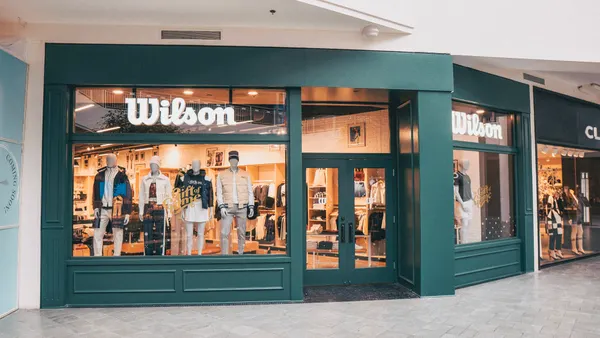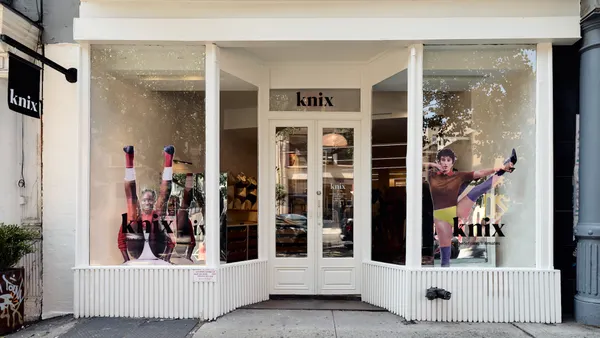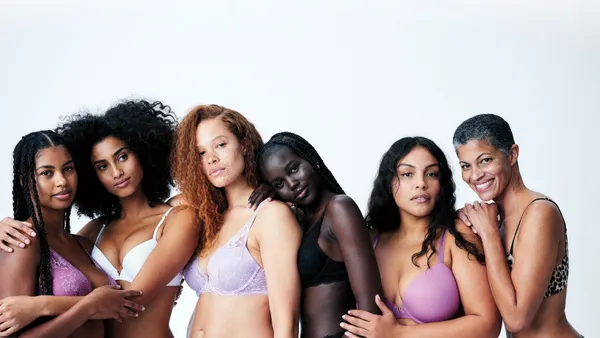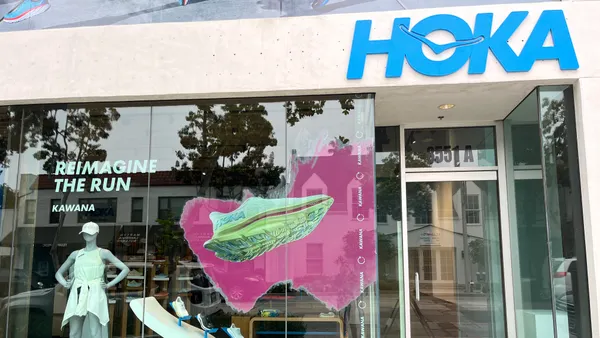Dive Brief:
-
Amazon offers more SKUs from PVH Corp, owner of Calvin Klein and Tommy Hilfiger brands, than Macy's and J.C. Penney, according to an analyst report from Instinet Equity Research emailed to Retail Dive.
-
In light of the many third-party sellers on Amazon's marketplace, that's not surprising, according to Instinet analyst Simeon Siegel. "While SKU counts don't equal sales, this gives a general idea of the range of choice that selling on [Amazon] provides," he wrote in his report.
-
But that doesn't necessarily mean a slam-dunk for Amazon — or the PVH brands selling there, he told Retail Dive in an interview. "The breadth of offering doesn't speak to the depth of offering or the conversion," he said. "Despite Amazon having more search results, the department stores will presumably have a larger business than Amazon."
Dive Insight:
Amazon has cast a long, and at times dark, shadow over retail in the last two decades, but there are some things about the industry it has yet to master.
The e-commerce giant sells just about everything, and lots of it. But the company so far hasn't demonstrated the more artful aspects of retail like curation and personalization. That is evident in its first curated store, the newly opened 4-Star concept in New York, according to another Instinet report, which was also emailed to Retail Dive.
"[B]ased on our checks, we believe the store is a perfect brick-and-mortar manifestation of the Amazon online- shopping experience; i.e., there is a collection of bestsellers, but the shopping experience still feels somewhat overwhelming," Siegel's team wrote in that report. "Whereas Whole Foods, bookstores, and cashierless Go locations seem to offer something different than the Amazon homepage, Amazon 4-star appears to echo a (curated) collection of interesting top-sellers that are at your grasp if you know what you want, but still seem difficult to browse and discover if you don't."
That echoes other observers' takes on e-commerce vs. brick and mortar more generally. "Let's be honest e-commerce is about 'I know what I want and I want it right away,'" Bob Phibbs, CEO of retail consultancy The Retail Doctor, told Retail Dive in a recent interview. "I'm not going on Amazon to discover a new T-shirt. There's no gratification to buying online. We buy to get it over with."
When it comes to apparel sales, Amazon has demonstrated its growing ability to grab market share, but that won't necessarily translate to an advantage for specific brands, according to Siegel. In fact, physical stores, with their inherent space limitations, actually have an edge when it comes to discovery because they can arrange their merchandise in ways that tell a story and steer their shoppers, he said.
"What Amazon has essentially created is the notion that a search engine and a mall together can become the best place to shop," Siegel told Retail Dive. "Any person in the world is allowed to post their inventory in this marketplace and unsurprisingly — big bold letters — they're going to have a broader offering than any other retailer. But in a world of infinite objects, discovery is impossible."













